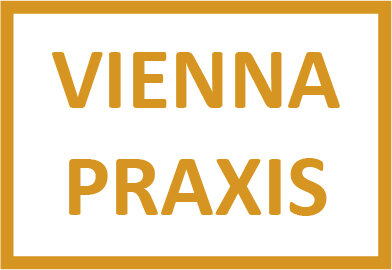Relationship Conflicts
Navigating relationships can be difficult. The unique blend of emotional vulnerability and physical closeness that characterizes romantic partnerships provides a fertile ground for unrealistic expectations of oneself and one’s loved one.
Why is individual therapy helpful for relationship conflicts?
In the words of Esther Perel from her book Mating in Captivity, “The grand illusion of committed love is that we think our partners are ours. In truth, their separateness is unassailable, and their mystery is forever ungraspable.” Although our partner’s separateness and mystery is part of what makes us attracted to them, this “unassailable separateness” also underlies the inevitable moments of misalignment (however small) that will occur in all relationships. Although conflicts and misunderstandings are to be expected, small ruptures can become unbridgeable chasms if there is a lack of healthy communication or respect between partners.
While couples’ therapy can help both you and your partner address conflicts and work together to strengthen communication, individual therapy can help you to more intensively, and privately, address your feelings, fears, and wishes about your relationship. Perhaps you’re not ready for couples’ therapy but want to address nagging feelings of uncertainty, unfulfillment, distrust, resentment/anger or jealousy that have arisen in your relationship. Perhaps you find yourself reacting in habitual ways to conflict (e.g., withdrawal/threatening breakup, explosive anger, self-recrimination) that create distance instead of bringing you and your partner together. Or perhaps you want to privately discuss your partner’s unsupportive, secretive, narcissistic, or abusive behavior and figure out what you should do about it. Through therapy you can pinpoint barriers to relationship security and healthy intimacy and begin the process of creating change in your life.
Some common conflicts that can be addressed through individual therapy are:
Thoughts, emotions, and behaviors rooted in insecure attachment (e.g., fear of abandonment, fear of too much closeness, excessive jealousy)
Difficulty with healthy and effective communication during conflict (e.g., shutting down or giving the silent treatment; suppressing your own wants/needs for the sake of “keeping the peace”; becoming excessively angry or saying hurtful things during conflicts)
Difficulty setting and adhering to boundaries/feeling like a “doormat”
Feelings of resentment towards your partner
Feelings of insecurity in your relationship due to a partner’s unwillingness to commit
Feelings of uncertainty about the “rightness” of your relationship
Navigating a partner’s jealousy
Impaired trust in your relationship after infidelity
Navigating consensual non-monogamy
Waning sexual activity or attraction
Anxiety about engagement, marriage, or navigating parenthood together
Contemplation of divorce or navigation of the divorce process
Emotional or physical abuse
If you are currently navigating relationship conflicts, individual therapy can help you in a variety of ways. Even if you are currently in couples therapy, an individual therapist can support you in processing these sessions and putting behavioral change into action. Below are just a few common relationship dynamics and conflicts that you might resonate with.
Louisa often gets explosively angry at her husband Eric for being forgetful or failing to remember to do tasks around the house. When Louisa gets angry, Eric withdraws and becomes silent which further compounds Louisa’s anger. Louisa and Eric are working with a couples’ therapist on developing healthier communication and putting an end to this harmful dynamic. Louisa additionally enrolled in individual therapy to further understand her reasons for becoming so “triggered” when Eric is forgetful. Through therapy, Louisa was able to process painful early memories that had led her to equate Eric’s forgetfulness with lack of love and respect. By becoming aware of these dynamics she became better able to act mindfully and not take automatic offense at Eric’s disorganization and forgetfulness. In individual therapy, Louisa has also been able to practice targeted interventions for managing her anger that have proven effective. In Louisa’s case, individual therapy was a crucial supplement to couples’ therapy that helped her make real change in her relationship.
If you are not in couples’ therapy, individual therapy can help you to identify and process areas of dissatisfaction or conflict in your relationship. From a place of deeper clarity you will be better equipped to take appropriate action.
Laura’s fiancee cheated on her earlier in their relationship. Although they got back together, lingering feelings of distrust and resentment were swept under the rug and suppressed. Since these feelings were never addressed, Laura felt anxious and ambivalent about marriage. Through therapy Laura was able to process her true feelings about her fiancee’s betrayal and also effectively communicate her lingering doubts to her fiancee. From there, they made the joint decision to enroll in couples’ therapy and put off the wedding until they reached a place of firmer ground.
Carlo has always wanted to have children but Dean is more ambivalent and anxious about the loss of freedom that may accompany expanding their family. Since the subject of children often turns into an uncomfortable conversation, Carlo has been avoiding bringing it up again. Carlo loves Dean deeply and would like to solidify their commitment but feels like he can’t move forward without being definitively on the same page about children. Through therapy Carlo was able to address his tendency to avoid uncomfortable conversations in order to “keep the peace.” He was also able to process his conflicted emotions about the prospect of losing Dean as well as his emotions about the prospect of never having children. From a place of greater awareness and clarity he was able to have a tough, anxiety-provoking conversation with Dean and together they came to a resolution.
